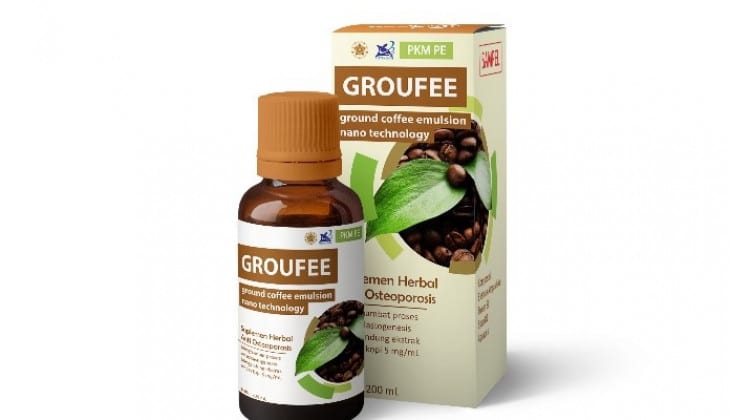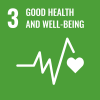
The prevalence of osteoporosis in the world is increasing. Hip bone fracture due to osteoporosis is predicted to increase from 1.12 million in 2018 to 2.56 million in 2050.
Osteoporosis happens due to excessive bone resorption. Reducing the risk of osteoporosis can be done in several ways, including taking supplements which contain ingredients that can prevent bone resorption caused by osteoclast differentiation.
Students of the Faculty of Pharmacy at UGM explored the abundant natural ingredients in Indonesia as an anti-osteoclastogenesis agent to inhibit osteoporosis. Marina Elsaida Harianja, Mila Hanifa, and Ahmad Naufal promoted coffee (Coffea arabica L.) grounds which contain various compounds and have pharmacological effects to inhibit osteoclast differentiation.
Marina Elsaida Harianja, team chairperson of the Student Creativity Program in the Faculty of Pharmacy, said at UGM on Monday (19/8) that osteoclast differentiation inhibition can also inhibit osteoporosis. So, coffee grounds that contain chlorogenic acid have the potential to be developed as osteoclastogenesis inhibitor which has implications for inhibiting osteoporosis.
The team which later received funding support from the Ministry of Research, Technology and Higher Education even more steadily conducted research to explore the potential of coffee grounds as an anti-osteoclastogenesis agent to prevent osteoporosis. Osteoclastogenesis is the process of differentiating osteoclast formation from monocyte-macrophage lineage through receptors by the Receptor Activator of Nuclear Kappa-B (RANK).
“The research employs in vitro method, osteoclastogenesis is prepared using a macrophagous cell system in the form of RAW 264.7 cells that are induced with osteoclast-differential factor (sODF) or RANKL. The tested sample is ethanolic extract of coffee grounds (ECG) obtained by extraction method with ethanol 70%,” she said.
Marina said the tests confirmed that the coffee grounds contain chlorogenic acid compound. Total flavonoid testing showed that ethanolic extract of coffee grounds compound has a total flavonoid of 0.33 % (b/b). The results of this test showed that ECG is non-toxic to RAW 264.7 cells. But in later tests it was found that extraction treatment can inhibit osteoclastogenesis processes, she said. Furthermore, they found out that chlorogenic acid has a better and higher interaction than native ligands.
There are four important aspects in this research: ingredient quality, chemical aspect, biological aspect, and molecular aspect. From these aspects, the potential of coffee grounds extract as anti-osteoclastogenesis can be developed as osteoporosis inhibitor.
The students explained that the ethanolic extract of coffee grounds is formulated into nanoemulsion. This was decided based on the hydrophilic nature of chlorogenic acid which makes it difficult to enter the lipophilic membrane, leading to low bioavailability.
“Hence, to resolve this weakness, we prepare nanoemulsion that can increase the bioavailability of chlorogenic acid. It is also practical, easy for consumption, and can improve the pleasant aroma of coffee grounds,” she said.



